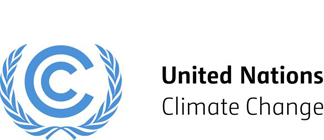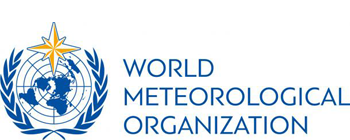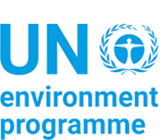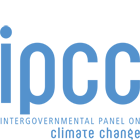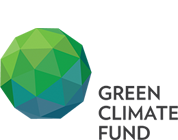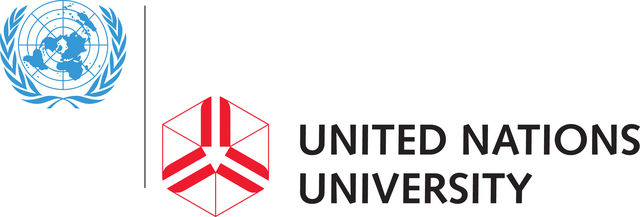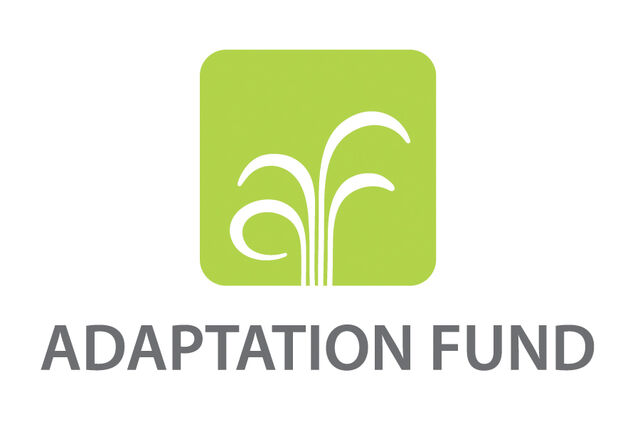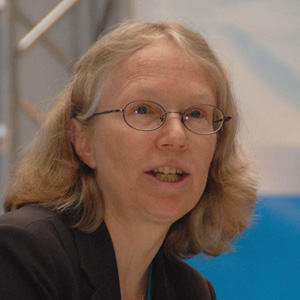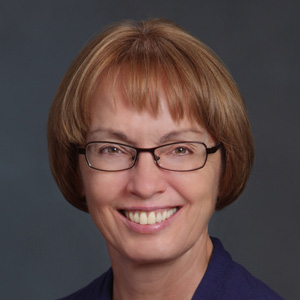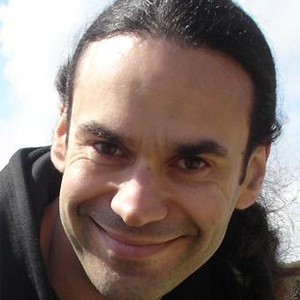The Science Committee is composed of 23 distinguished members of the research community and academia. Science Committee members represent diverse disciplines and sectors, reflecting the multiple dimensions of climate adaptation science.
The Science Committee's key mandate and duties include:
- to provide scientific guidance to the Management Group, and ensure that up-to-date and rigorous science is appropriately reflected in the development, implementation, and communication of WASP outputs
- to support and contribute to the exchange of information between the Programme and the climate science community at large, and relevant scientific unions, institutions, agencies, and networks at the national and international level
- to identify knowledge gaps that could be addressed by either national or international research programmes and specific assessment needs that could be addressed by ongoing assessments
- to liaise with and organize relevant communities of practice, prioritize demand-driven research, build research networks and support the work of UNFCCC and IPCC
Co-Chairs
Cynthia Rosenzweig
NASA and Columbia University
Ms Cynthia Rosenzweig is a Senior Research Scientist at the NASA Goddard Institute for Space Studies, an Adjunct Senior Research Scientist at the Columbia University Earth Institute, and a Professor in the Department of Environmental Science at Barnard College. At NASA GISS, she heads the Climate Impacts Group whose mission is to investigate the interactions of climate (both variability and change) on systems and sectors important to human well-being. Dr. Rosenzweig is co-director of the Urban Climate Change Research Network (UCCRN) and co-editor of the UCCRN Assessment Reports on Climate Change and Cities (ARC3). Dr. Rosenzweig is a co-founder and co-leader of the Agricultural Model Intercomparison and Improvement Project (AgMIP). Dr. Rosenzweig was the Coordinating Lead Author of the Food Security Chapter for the IPCC Special Report on Climate Change and Land and the Coordinating Lead Author on observed climate change impacts for the IPCC Working Group II Fourth Assessment Report.
Anand Patwardhan
University of Maryland

Mr Anand Patwardhan is Professor in the School of Public Policy at the University of Maryland, College Park. He was earlier a Professor at the Shailesh J Mehta School of Management, Indian Institute of Technology-Bombay and a Visiting Professor at the Nicholas School of Environment, Duke University. He served as Executive Director of the Technology Information, Forecasting and Assessment Council (TIFAC), India from 2004-2008. Anand has a BTech (Electrical Engineering) from IIT-Bombay and a MS (Civil Engineering) and PhD (Engineering and Public Policy), both from Carnegie Mellon University. Anand has worked extensively in the area of climate policy at the national and multilateral level, focusing on mitigation and adaptation responses to climate change, and the assessment of vulnerability and adaptation. He has also worked on broader issues of science, technology and innovation policy, including the diffusion and adoption of clean technology. He is particularly interested in questions of vulnerability and resilience and the linkages with sustainable development. He is a member of the Scientific Advisory Panel for the Global Environment Outlook (GEO) 6 and one of the Co-chairs of the Science Committee of the World Adaptation Science Program. He was a coordinating lead author for the Fourth and Fifth Assessment Reports of the Intergovernmental Panel on Climate Change (IPCC), and a member of the Scientific and Technical Advisory Panel (STAP) of the Global Environment Facility (GEF). He was associated with the Global Energy Assessment (GEA) as coordinating lead author and co-chair of the Executive Committee. He is on the editorial board of Climate and Development and Climatic Change Letters and was a founding editor and former editor-in-chief of Current Opinion in Environmental Sustainability.
Johanna Nalau
Griffith University

Ms Johanna Nalau is an award-winning adaptation scientist who thrives on finding clues how humans can better see into the future and make robust decisions today that secure a more resilient future for us all. Her research focuses on understanding climate adaptation decision principles and what role adaptation science does and can play in decision- and policy-making. She is an Australian Research Council DECRA Fellow at Griffith University leading an Australian first project on the development and feasibility of adaptation heuristics. The project aims to uncover such key principles, interrogate their feasibility as decision guides, and provide more robust advice on how to invest and pursue effective and successful adaptation to climate change that enables benefits to the environment, society and security. Dr Nalau is Lead Author in the Intergovernmental Panel on Climate Change (IPCC) 6th Assessment report in Working Group II (Chapter 15 Small Islands), Managing Editor of the Journal of Climate Risk Management, and Co-chair of the Science Committee of the World Adaptation Science Program. She also leads the Adaptation Science Research Theme at Cities Research Institute at Griffith University that focuses on bringing together the university’s key thinkers on adaptation. She was awarded Griffith University Young Outstanding Alumni Award 2019 for the Sciences Group, and the Queensland Young Tall Poppy Science Award 2020. She is passionate about building the capacity of the next generation through enabling leadership and career development and innovation in adaptation science.
Members
Mark New
University of Cape Town and University of East Anglia
Mr Mark New is director of the African Climate and Development Initiative at the University of Cape Town, and AXA Research Chair in African Climate Risk and an Emeritus Professor at the University of East Anglia. He is also the Director of the African Research Universities Alliance Centre of Excellence in Climate and Development, a partnership between the Universities of Ghana, Nairobi and Cape Town. Mark has over twenty years of research experience focusing on climate change detection, attribution and forecasting, as well assessing the impacts of climate change, and development of methods for assessing climate adaptation options. He is currently a coordinating lead author for the Intergovernmental Panel on Climate Change 6th Assessment Report, Chapter 17 of Working Group II, Decision Making Options for Managing Risk.
Kristie L. Ebi
University of Washington
Ms Kristie L. Ebi (Ph.D., MPH) is Professor in the Center for Health and the Global Environment at the University of Washington. She has been conducting research and practice on the health risks of climate variability and change for nearly 25 years, focusing on understanding sources of vulnerability; estimating current impacts and future health risks; designing adaptation policies and measures to reduce the risks of climate change in multi-stressor environments; and estimating the health co-benefits of mitigation policies. She has supported multiple countries in Central America, Europe, Africa, Asia, and the Pacific in assessing their vulnerability and implementing adaptation measures. She has been an author on multiple national and international climate change assessments. She has more than 200 publications and has edited fours books on aspects of climate change.
Valerie Kapos
UN Environment World Conservation Monitoring Centre
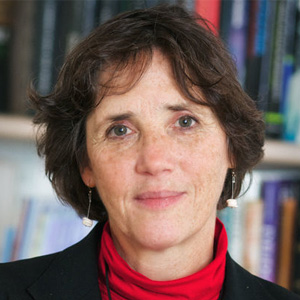
Ms Valerie Kapos is Head of the Climate Change & Biodiversity Programme of the UN Environment World Conservation Monitoring Centre. She leads the Centre’s work on the impacts of climate change on biodiversity and the role of ecosystems, in climate change mitigation and adaptation – nature-based solutions. Particular foci are REDD+ and management of ecosystems other than forests for mitigation, and ecosystem-based approaches to adaptation (EbA). The mitigation work focuses on supporting countries to take account of biodiversity and ecosystem services in planning and implementing REDD+ and other ecosystem management action that delivers multiple environmental benefits. Countries are also supported to develop their approaches to the Cancun Safeguards and to identify and address the potential risks and benefits of REDD+ accordingly. The Programme’s work on EbA focuses on building the evidence base on the effectiveness of EBA approaches, identifying and promoting good practice, including in monitoring and evaluation, and supporting public and private sector decision makers in incorporating ecosystems/NbS in adaptation planning and policy, and in implementing such options for adaptation to climate change. Before joining UNEP-WCMC, Val spent over 15 years doing field research in tropical forest ecology in Latin America and the Caribbean. She has published over 60 peer reviewed journal papers, and numerous (over 150) articles, technical reports, book.
Sebastian Vicuña D.
Pontificia Universidad Católica de Chile
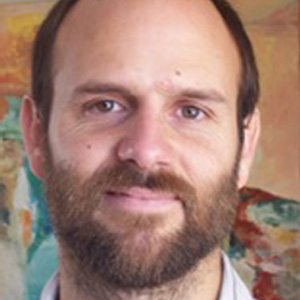
Mr Sebastian Vicuña D. is the Director of Centro de Cambio Global, and Associate Professor in the School of Engineering at Pontificia Universidad Católica de Chile.Sebastian is an Associate Professor at the School of Engineering and Director of the Centro de Cambio Global (Global Change Research Center) at the Pontificia Universidad Católica de Chile. His research interests are related to water resources, hydrologic modeling, climate change adaptation, and integrated watershed management. Related to these research areas, Sebastian is the Lead Author for the Second Assessment Report on Climate Change and Cities (ARC3-2), was a Lead Author of the IPCC 5th Assessment Report in the chapter on Climate Change Impacts in Central and South America, and was a Review Editor for the IPCC Special Report on Climate Change and Extreme Events in the chapter impacts. Sebastian is an Environmental Engineer from the Pontificia Universidad Católica de Chile. In 2004 he earned a Masters in Public Policy and a Masters in Environmental Engineering from the University of California at Berkeley. In 2007 he obtained a Ph.D. in Environmental Engineering from the same university.
Mr Wei Liu, trained in ecology and social sciences in China and the US, has diverse research experience on development, conservation and disaster risk challenges across Asia, Africa and Europe in the contexts of climate change and globalization. He was a Research Scholar at the Risk and Resilience Program of the International Institute for Applied Systems Analysis in Austria, where he led the Governance in a Transition research group in 2017-2020. He recently joined the Luohan Academy of the Alibaba Group as a Senior Economist and Senior Advisor, focusing on how digitalization can help achieve sustainability goals worldwide.
Kathryn J. Bowen
University of Melbourne
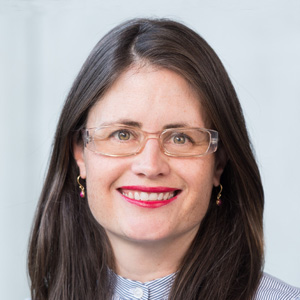
Ms Kathryn J. Bowen is a Professor and Deputy Director at Melbourne Climate Futures, and incoming Professor (Environment, Climate, and Global Health) at the Melbourne School of Population and Global Health, University of Melbourne. Kathryn works at the nexus of global environmental change, global health and governance issues primarily in low and middle-income settings. She holds a PhD (ANU), MSc (International Health), DTMPH (Humboldt & Frei Universities, Berlin) and BA/Psyc (Hons) (Newcastle). Kathryn has worked in global health research and policy since 1999, across public, private and university sectors. She is a Research Fellow within the Earth System Governance project, and Alumni of the Centre for Sustainability Leadership. Kathryn holds a number of key international leadership roles, including as Lead Author on the Intergovernmental Panel on Climate Change (IPCC) 6th Assessment Report (Ch. 7, Health), the Science Committee of the World Adaptation Science Program (UNEP); the Steering Committee of the Future Earth Health Knowledge Action Network (Health KAN), and the Planetary Justice Taskforce as part of the Earth System Governance network. Kathryn is regularly commissioned by international bilateral and multilateral agencies (eg. WHO, DFAT, UNEP, UNDP, ADB, GIZ, DFAT) to co-design solutions for sustainable futures, particularly in relation to planetary health. She works passionately to empower colleagues and decision-makers and collaborate with diverse stakeholders to drive positive outcomes.
Benjamin Sultan
French Research Institute for Development (IRD)
Mr Benjamin Sultan is a senior scientist at IRD focused on climate dynamics, impacts, and adaptation in developing countries. He published more than 90 peer-reviewed papers and organized several international conferences and gave numerous academic lectures on climate change impacts. He coordinated several interdisciplinary research projects with African and Asian partners. Dr. Benjamin Sultan is contributing author of the IPCC AR6, a member of the French Scientific Committee on Desertification (nominated by the French Government), and a nominated member of the Steering Committee of Climate Services at the French Environment Alliance Allenvi.
Zita Sebesvari
United Nations University

Zita Sebesvari is Deputy Director of the United Nations University, Institute for Environment and Human Security (UNU-EHS) and Head of the Risk and Adaptation Department. Zita works in the field of risk reduction and adaptation of social-ecological systems with a focus on low-lying coastal areas, e.g. river deltas. She holds a PhD in Environmental Sciences (Oldenburg, Germany), an M.Sc in Ecology (Essen, Germany) and a Diploma in History (Budapest, Hungary). Zita has been working in the field of risk, vulnerability and adaptation in an international context since 2007 and has a keen interest in inter- and transdisciplinary research and collaboration. Zita was lead author of the IPCC Special Report on Oceans and the Cryosphere in a Changing Climate (SROCCC, Chapter 4 and Summary for Policymakers; 2019). She chairs UNU´s board of the joint UNU/University Bonn M.Sc. programme Geography of Environmental Risks and Human Security and teaches a module on ecosystem-based approaches to disaster risk reduction and adaptation. Zita is member of the Executive Board of the Munich Climate Insurance Initiative. In her personal capacity, she is member of the European Commission Mission Board for Adaptation to Climate Change including Societal Transformation. A citizen of Hungary and Germany, Dr. Sebesvari is fluent in English, Hungarian and German.
Alexandre K. Magnan
Cawthron Institute

Alexandre K. Magnan is Senior Research fellow on "Adaptation to Climate Change" at the Cawthron Institute (Nelson, South Island, Aotearoa New Zealand). His research mostly focuses on coastal areas in small islands in the Ocean and Pacific oceans. He is interested in understanding the main influential drivers of societal vulnerability over the last decades, the risk of maladaptation to climate change, and the design of adaptation pathways. He develops expert judgment methods to assess future climate risks, the effectiveness of adaptation options (to what extent are they “solutions”?), and adaptation efforts at multiple levels (local and global). Finally, he has strong interest in there science-policy interface, and develops works on understanding the framing and implementation of the Global Goal on Adaptation under the UNFCCC. Alexandre holds a PhD in geography (2005) as well as a Habilitation to supervise research (2018). He has been an IPCC (Intergovernmental Panel on Climate Change - Working Group II "Impact, Vulnerability, Adaptation »; Special Report on Oceans and Cryosphere in 2019, and Sixth Assessment Report in 2022). He leads the synthesis chapter of the UNEP Adaptation Gap Report and is a member of the World Adaptation Science Programme’s Scientific Committee.
Edmond Totin
Université Nationale d’Agriculture in Benin
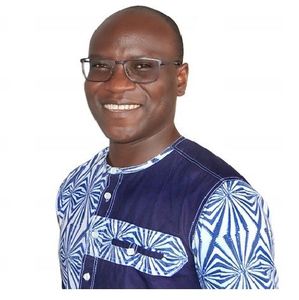
Edmond Totin (Benin) is a social scientist by training. He has expertise in the management of agricultural innovation, climate adaptation and governance, nexus between climate research and policy. He is a lecturer at the Université Nationale d’Agriculture in Benin (West - Africa). Before joining the university, Edmond served as a Scientist for policy and institutions at the International Crops Research Institute for the Semi-Arid Tropics (ICRISAT) and as a project coordinator at Climate Analytics Gmbh, with a leading role in bridging the gaps between climate science and policy. He is also working with World Vegetable Center and has a long and engaging experience in climate change and food security across Africa. Edmond served as one of the Coordinating Lead Authors on the AR6-Africa Chapter of the IPCC 6th assessment report. He is also one of the co-chairs of the upcoming Adaptation Future 2023 Conference and an Associate Editor for Climate & Development Journal, one of the leading platforms in climate sciences.
Elisabeth Gilmore
Carleton University, Canada
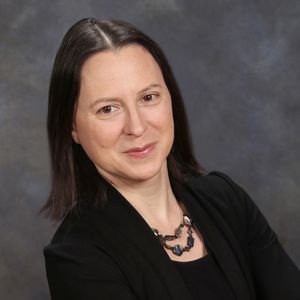
Dr. Elisabeth Gilmore is an interdisciplinary scholar who integrates quantitative and qualitative methods to understand the dynamics of environmental hazards, socioeconomic and political factors, and adaptation responses. Her recent research has looked at the interactions of climate risks on violent conflict, mobility, and governance in developed and developing contexts as well as the economics of climate risks, mitigation and adaptation. She is currently engaged with the development of long-term sociopolitical scenarios for use in climate policy and integrated assessment modeling. She has contributed to several climate assessments as a drafting author of the Summary for Policymakers and lead author of the North America Chapter of the Working Group II’s contribution to the 6th Assessment of the Intergovernmental Panel on Climate Change (IPCC), a lead author on the UN Environmental Programme’s first Climate Technology Progress Report and technical contributor to the 5th US National Climate Assessment. She is an Associate Professor in Environmental Engineering and the School of Public Policy and Administration at Carleton University, Ottawa, Canada and an Associate Senior Researcher at the Peace Research Institute Oslo (PRIO), Norway. She is also a senior adviser at Environment and Climate Change Canada (ECCC) where she supports IPCC activities and climate science priorities.
Sandra L.Morrison
University of Waikato

Sandy is an Indigenous Māori woman scholar from the tribal confederations of Te Arawa and Tainui. Her research is interdisciplinary with a focus on fore-fronting Indigenous models to address and contribute to finding solutions to developmental issues for Indigenous and Pacific peoples. Her research platform and professional specialty focuses on adult education for sustainable development; social impacts of climate change and climate mobility; inequitable structures of economic development, and intercultural dialogue among different constituencies. As the Vision Mātauranga lead of the Māori Council for the Deep South National Science Challenge, she oversees a number of Vision Mātauranga projects which investigate climate change impacts and opportunities for iwi, hapū, whānau and Māori business. Together they represent the largest ever Māori-led research effort into the implications of changing climate conditions for Māori society. She also is a member of the Steering Group and co lead of the Māori Council for the Antarctic Science Platform, a major Government funded research project which supports a range of physical and biological sciences to understand Antarctica’s impact on the global earth system and New Zealand. The Māori Council provides advice in relation to the inclusion of Māori knowledge systems in Antarctic research while also actively supporting increased Māori participation. She is the Acting Dean, Faculty of Māori and Indigenous Studies at the University of Waikato; Past President of ICAE, International Council for Adult Education (2015-2020) and also ASPBAE (Asia South Pacific Association for Basic and Adult Education, 2008-2012). She was inducted into the International Adult and Community Education Hall of Fame by the University of Oklahoma in 2009.
Camila Donatti
Conservation International & Northern Arizona University

Dr. Camila Donatti is the Senior Director of Climate Adaptation Science at Conservation International and an adjunct faculty at the Department of Biological Sciences at Northern Arizona University. Camila is an ecologist and researcher helping to understand and communicate the direct contribution of healthy ecosystems to biodiversity and people’s lives. Her current research focuses on understanding the global role of nature in minimizing the impacts of climate change by quantifying the number of people that could have their vulnerabilities reduced by the protection, restoration and management of ecosystems. She is also collaborating with colleagues in Madagascar, Kenya and Botswana to build the evidence base on nature-based solutions for climate adaptation. Camila has participated in 21 biodiversity and climate change adaptation projects funded by the Green Climate Fund, the International Climate Initiative of the German government and USAID, among others. She has authored 38 peer-reviewed publications and dozens of technical and policy briefs to translate the results of her research to practitioners, policy and decision makers. Camila holds a Ph.D. in Biological Sciences from Stanford University, a Masters in Agroecosystems Ecology from University of São Paulo (Brazil) and an undergraduate degree in Ecology from São Paulo State University (Brazil).
Robbert Biesbroek
Wageningen University & Research, the Netherlands

Dr. Robbert Biesbroek is an Associate Professor (tenured) in the Public Administration and Policy group at Wageningen University & Research, the Netherlands. With a background in political science and policy studies, his research revolves around the policy dynamics of cross-cutting societal issues, particularly how governments across the world address climate change impacts, vulnerability and adaptation. He received a prestigious early career research grant from the Dutch Research Council (2018-2022) to study climate change adaptation policy integration, and a follow-up mid-career grant to study the politic of tracking adaptation to climate change (2023-2028). He contributed to several international climate assessments; for example he was Coordinating Lead Author for the Intergovernmental Panel on Climate Change (IPCC) AR6 WGII report on ‘Impacts, Vulnerability and Adaptation’, chapter 13: Europe (2018-2022), contributed to the UNEP Adaptation GAP reports (2017, 2022), and is currently involved in the first European Union Climate Risk Assessment (EUCRA, 2022-2024). Robbert has (co)authored over 100 scientific articles in leading journals and won several scientific awards for his work. He serves as editor for the scientific journals Regional Environmental Change and Climatic Change.
David Mfitumukiza
Makerere University

David Mfitumukiza is a Ugandan researcher and educator at Makerere University, Department of Geography, Geo-informatics and Climatic Sciences. He has about 20 years of working experience in Environmental Systems Analysis and management including serving as a District Local Government Environment Officer. His work mainly focuses on bottom-up approaches to climate change adaptation including community-based adaptation research for policy, practice and capacity development across scales. He has been involved in research and community outreach programs on land use and natural resources assessment, climate change and variability impact assessments, food security, and environment and natural resources information systems for monitoring, evaluation and learning using remote sensing and Geographic Information Systems. He worked as an Adaptation Specialist and Chief of Party for the USAID/Uganda Education and Research Programme from 2013 to 2018. He is one of the founders and coordinators of the Least Developed Countries’ Universities Consortium on Climate Change (LUCCC) with focus on capacity building and action-oriented research for locally led adaptation and resilience in Asia and Africa.
Estefania Arteaga
Informed City & Griffith University
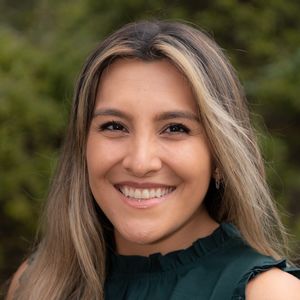
Dr. Estefania Arteaga is a seasoned researcher and practitioner with extensive expertise in climate change mitigation and adaptation. She has collaborated with decision-makers across Latin America and Australia, contributing to developing strategies to reduce emissions and minimise climate change-related vulnerabilities. Her diverse experience includes conducting evaluations and monitoring of REDD+ programs, Carbon and Water Footprint Assessments, and creating policies and action plans for sustainable interventions. Estefania specializes in vulnerability assessments, risk management, and designing effective adaptation strategies. An experienced Climate Change Knowledge Broker, Estefania excels at turning knowledge into action by connecting know-how, know-why, and know-who. Her doctoral research focused on bridging the gap between theory and practice in climate adaptation. Currently serving as the Coordinator of Climate Adaptation for the City of Gold Coast, she leads the development and implementation of adaptation and resilience strategies. Estefania is dedicated to crafting solutions that enable better planning and effective action, while addressing challenges in translating theoretical knowledge into real-world outcomes. With a proven track record of delivering impactful, sustainable solutions, Estefania has established herself as a leading expert in climate change adaptation. Her goal is to become a trusted leader in the field, guiding decision-makers and stakeholders toward sustainable, long-term practices.
Kavya Michael
Chalmers University of Technology

Kavya Michael is an environmental social scientist with expertise in analyzing the ‘natural environment’ through a social science lens. Her research and professional experience broadly lie in examining global environmental change and energy-related issues through a human rights and justice lens. Within this domain, questions of class, caste, and gender have been central to her analysis. She also studies the multiple intersections of climate change/environmental hazards, urban inequality, informality, and inter and intra-regional migration with a special focus on the Global South. Her current work examines how the various structural elements of gendered injustices and the resultant forms of exclusion in different sectorial contexts, interact with the impacts of climate change as well as climate action and energy transitions across the globe. Kavya is a recipient of the IDRC Climate Leadership Fellowship and was hosted at the Political Economy Research Institute, Amherst, USA as a visiting scholar researching urbanization and climate change in the Global South. She is also an author of the urban background paper of the Global Commission on Adaptation which underscored the need for urban climate change adaptation measures to be underpinned by justice, equity, and nature for ensuring transformative action. Theoretically, Kavya’s research falls within the domains of political ecology, feminist post-colonial theories, and social inclusion/justice.
Debra Roberts
University of KwaZulu-Natal
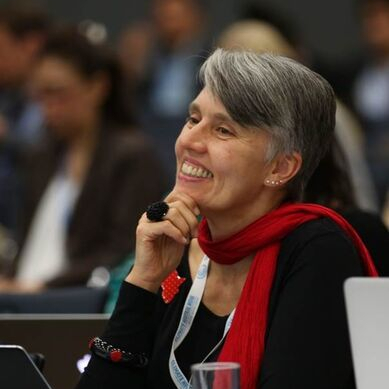
Professor Debra Roberts is scientist who has spent the last four decades working at the science-policy-practice interface in the fields of biodiversity planning and management, climate change adaptation and mitigation and sustainable development and resilience at local and international levels. Professor Roberts headed the Sustainable and Resilient City Initiatives Unit and Environmental Planning and Climate Protection Department in eThekwini Municipality (Durban, South Africa) between 1994 and 2024. She was elected as the Intergovernmental Panel on Climate Change (IPCC) Co-Chair of Working Group II (Impacts, Adaptation and Vulnerability) for the sixth assessment cycle (2015-2023). Professor Roberts has held several international advisory roles, for example in the Global Commission on Adaptation; United Cities and Local Governments; ICLEI-Local Governments for Sustainability; the United Nations Secretary General’s Climate Summit; Global Commission for SDG Urban Finance; the WMO World Weather Research Programme; UN-Habitat and UNEP. In 2019 and 2022/23 she was included in a list of the World’s 100 Most Influential People in Climate Policy. She is currently an Honorary Professor at the University of KwaZulu-Natal in the School of Life Sciences and holds the Professor Willem Schermerhorn Chair in Open Science from a Majority World Perspective at the Faculty of Geo-Information Science at the University of Twente. She is also President of the AXA Research Fund Scientific Board.
Timo Leiter
London School of Economics and Political Science

Dr Timo Leiter is a Distinguished Policy Fellow at the London School of Economics and Political Science (LSE). He works at the intersection between research, policy and implementation. His main research area is monitoring and evaluation of adaptation including indicators, a topic he has published on widely. Timo co-designed the assessment framework of UNEP’s Adaptation Gap Report and led the background paper on adaptation metrics for the Global Commission on Adaptation. Recently, he co-facilitated the workshop series under the work programme on the Global Goal on Adaptation that led to the adoption of the first global policy framework on adaptation at COP28. In 2024, he was appointed as a member of the expert group that is developing indicators for the global adaptation targets. At the national level, Timo has been advising several governments on tracking the implementation of their national adaptation plans. Before joining the London School of Economics, Timo worked for seven years in international development including on adaptation planning, project development and adaptation finance. Timo is a lead author of UNEP’s Adaptation Gap Report and a contributing author to the IPCC Sixth Assessment Report, Working Group II where he authored the sections on adaptation monitoring and evaluation. Timo holds a PhD in climate change adaptation from LSE, and a master’s degree with High Distinction from Bond University, Queensland, Australia. Timo is a Fellow of the Royal Society of Arts (FRSA).
Manishka De Mel
The Columbia Climate School and the NASA Goddard Institute for Space Studies.
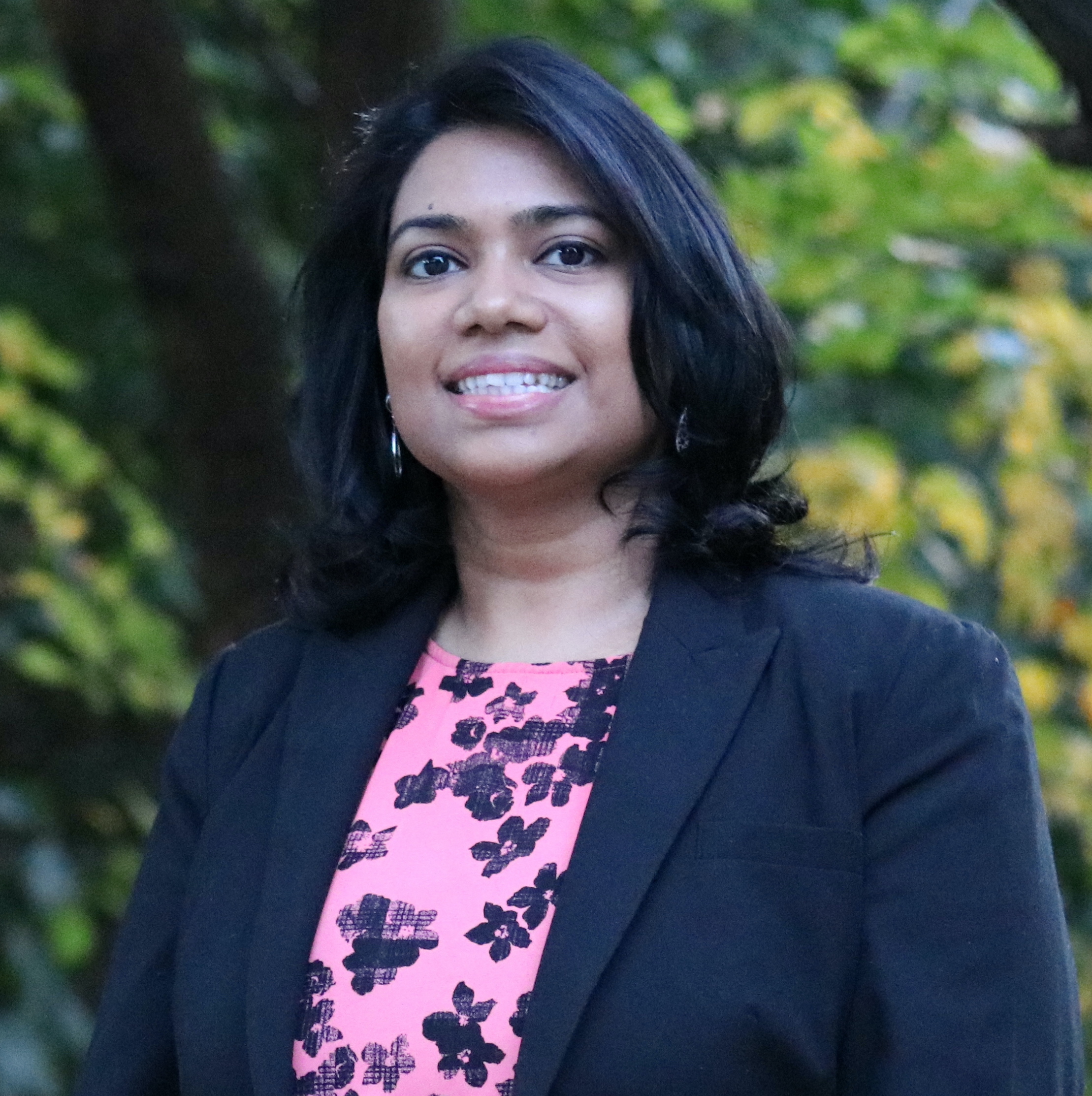
Manishka De Mel is a Senior Staff Associate at the Center for Climate Systems Research (CCSR), at the Columbia Climate School and the NASA Goddard Institute for Space Studies. At CCSR, she leads the Climate Impacts Group’s Nature-Based Solutions (NbS) Pillar, collaborating with a range of partners including the World Wildlife Fund, United Nations Development Programme, and Wildlife Conservation Society. Manishka is a Co-Director of the Earth Network on Harnessing Nature-based Solutions for Climate Adaptation and Mitigation at the Columbia Climate School. She has over 18 years of professional experience in climate change, biodiversity conservation, and environmental issues, and has worked on projects in ~20 countries. She engages with international organizations, government agencies, and other stakeholders to help them understand climate data and risks, and to plan for a changing climate through assessments and capacity-building workshops. Manishka was co-editor of Lectures in Climate Change: Climate Change Impacts and Adaptation, and is a Coordinating Lead Author for the NbS Element of the Urban Climate Change Research Network’s Third Assessment Report on Cities and Climate. She was a Lead Author of the UNEP’s 2020 Adaptation Gap Report’s focal chapter on nature-based solutions. From 2018 to 2021, Manishka led the Alumni Board of Columbia University's Master’s Program in Climate and Society and established its mentorship program. Prior to her work at CCSR, she worked at the Sri Lanka country office of the International Union for the Conservation of Nature (IUCN) and at the Environmental Foundation in Sri Lanka. Manishka holds an MA in Climate and Society from Columbia University and an MSc in Biodiversity, Conservation, and Management from the University of Oxford. Her credentials include certifications in Business Excellence from Columbia Business School and in Sustainable Finance from Columbia's School of Professional Studies.

